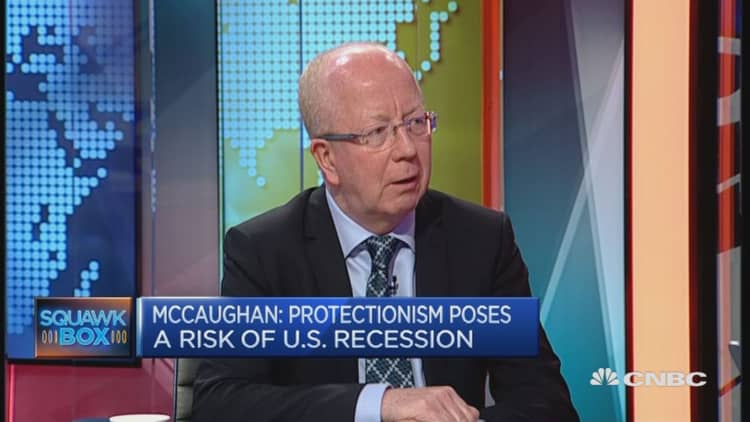Asia-Pacific nations must be leaders in promoting free trade as global growth slows, senior trade experts said in a report released Monday.
"Just because the United States is now less supportive of trade and globalization does not mean that the rest of the world will follow suit," Kevin Rudd, president, Asia Society Policy Institute, said in the report's foreword. With the right policies and high-standard trade agreements, he said, "Asia's growth can continue benefiting the world."
Titled "Charting a Course for Trade and Economic Integration in the Asia-Pacific," the report from the Asia Society Policy Institute's Independent Commission on Trade Policy lays out several principles for promoting free trade in the region.
"Asia's remarkable rise is not an accident, but the direct consequence of market-opening policies and other economic reforms, some as a result of unilateral action, others as part of commitments under trade agreements," the report said. "Key among them is a greater openness to trade."
The report referred several times to the Trans-Pacific Partnership as a model for future Asia-Pacific trade agreements, noting the deal had high standards and was one of the first to address digital trade. Although the 12-nation deal effectively died when President Donald Trump withdrew the U.S. from negotiations in January, the Asia Society report called for the U.S. to "reconsider its position."
Other recommendations emphasized the need for high standards in other trade agreements, focus on trends such as trade in services and digital products, and better education on the benefits of trade to consumers. The commission also listed the economic benefits of trade policy that supported small and medium-size businesses.

Developing free trade agreements are also critical to healthy development, the report said.
"If trade becomes a scapegoat for globalization's challenges, nations risk forfeiting a powerful tool for growth and needed economic reform. Forward-leaning trade policies can serve as an anchor for much-needed domestic reform, which can help countries modernize and open their economies."
Former representatives of Asia-Pacific nations to the World Trade Organization and heads of national trade policy were among the report's seven authors. The Hinrich Foundation sponsored the report.


